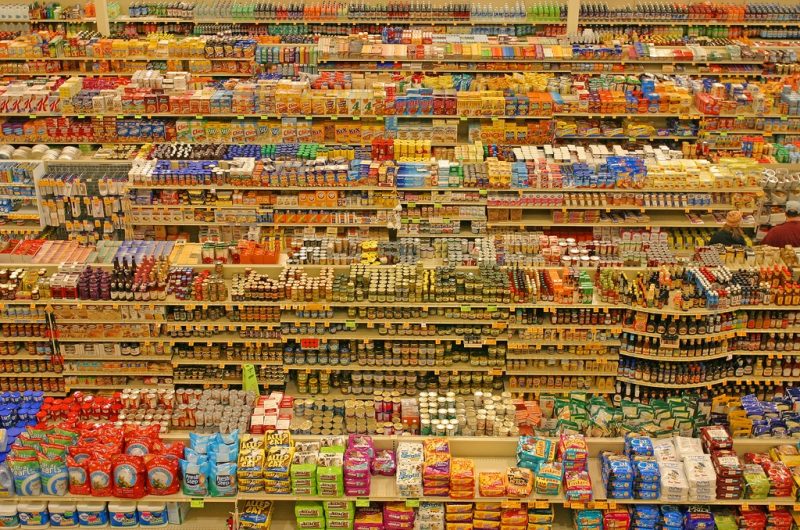Can the Sustainable Development Goals reduce our appetite?

The answer is in our appetites; our appetite for stuff! All that stuff we dig out of the ground to feed our growth economies, the stuff we buy from supermarkets then use and discard the next day - just think of the excessive shopping and discarding this Christmas season alone - the consequences of which wreck our home planet and bring stress to our societies. If we can find a way to rein in our appetites, we would be more than half through the journey to a sustainable civilization. That is our sustainable development goal. To achieve sustainable development, we must ensure sustainable consumption and production (SCP).
This much has been acknowledged. Back at the first Earth Summit in 1992 in Rio de Janeiro, heads of governments of United Nations member states declared that “the major cause of the continued deterioration of the global environment is the unsustainable pattern of consumption and production”. Ten years later in Johannesburg they called it one of the “overarching objectives of, and essential requirements for, sustainable development”.
As governments gathered for the 20th anniversary of the Rio Summit in June 2012 (again in Rio) we were further off target than 2 decades ago. “The Future We Want” the document adopted at the Rio+20 meeting, called for a set of integrated and yet simplified sustainable development goals (SDGs) to guide our way forward. The question (despite its acknowledged importance) is how to embed in the SDGs an issue as broad and complex as SCP – it touches on food security, climate change, energy, oceans, our lifestyles, and pretty much every facet of the economy.
Then there’s the often misguided government and corporate SCP approach: limited to trying to engineer a technology revolution and grow a market for eco-products instead of addressing the fundamental causes of why we produce and consume the way we do.
Research clearly shows that, beyond addressing human necessities, people and companies are trapped on the consumerism treadmill because economic policy, corporate forces, cultural practices and physical infrastructure implicitly or explicitly urge them to, even overpowering the majority of those who rationalize that they need to act sustainably.
Ignoring this fundamental drivers and limiting action to recycling and buying eco-friendly gadgets will not help! What’s worse is, while the increase in production and consumption is harming the environment, people are hardly getting any happier than when they had less stuff!
“ There has hardly been a stronger mandate for structural reform for sustainability. In the face of all the environmental and social crises, and with the knowledge that things could get even worse, if the SDGs are to have any legitimacy, they must take up some of the tough challenges that governments themselves have already agreed to.”
Forty years after the first UN meeting on the environment (1972 in Stockholm), not one country can show that it has achieved absolute decoupling of economic growth from environmental stress. For a start, an acknowledgement of this failure needs to be strongly reflected in the design of the SDGs framework. Issues relating to poverty, inequity, health, excesses of wealth, aspirations, etc., are as fundamental to patterns of consumption and production as technology is to production processes. Beyond just technical tweaks and hopes for absolute decoupling, getting to SCP through the SDGs framework would require nothing short of a critical review of the culture of consumerism that has become pervasive through mass media and advertisements and has been internailised by billions of consumers around the world; and which has come to define modern macro-economic thinking and the existing economic system.
Critics have complained that there is no mandate for strong reform. Consider this: the chapter in Agenda 21 dedicated to sustainable consumption calls for “new systems of national accounts and other indicators of sustainable development” that do not depend on economic growth. Rather there should be “new concepts of wealth and prosperity which allow higher standards of living through changed lifestyles and are less dependent on the Earth's finite resources and more in harmony with the Earth's carrying capacity”. There has hardly been a stronger mandate for structural reform for sustainability. In the face of all the environmental and social crises, and with the knowledge that things could get even worse, if the SDGs are to have any legitimacy, they must take up some of the tough challenges that governments themselves have already agreed to. Among them, at the core of them, is shifting our society towards sustainable consumption and production.
Lewis Akenji, Senior Policy Fellow, Institute for Global Environmental Strategies


